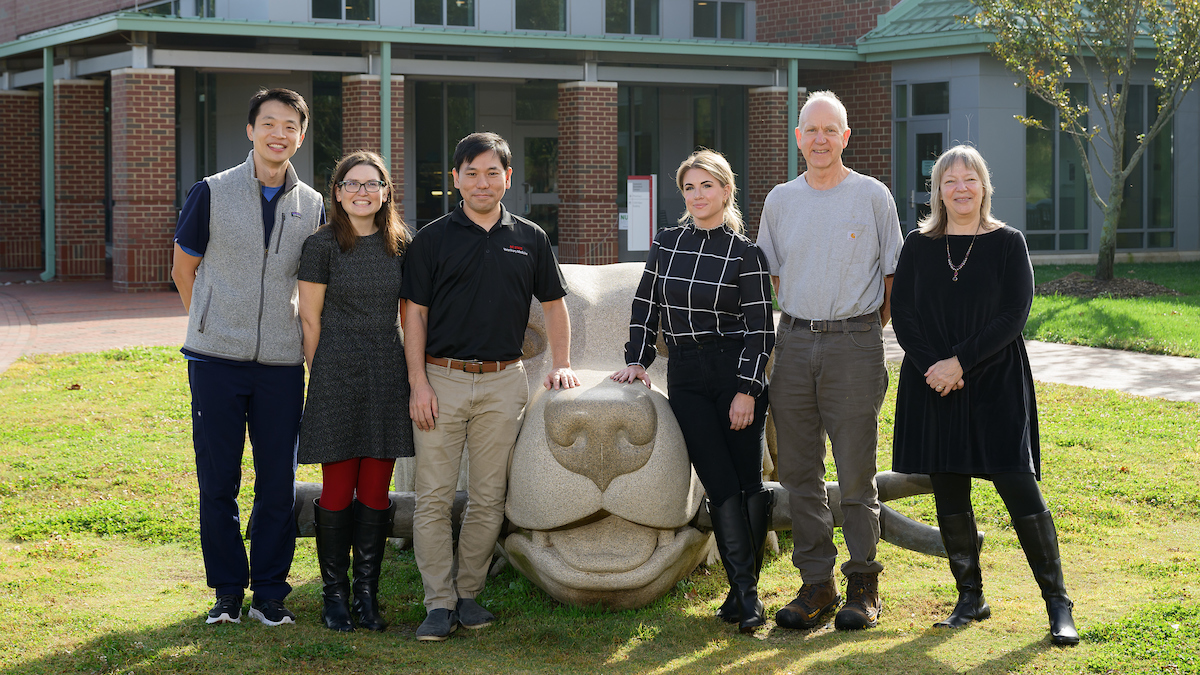New Comparative Medicine Institute Focuses on Translational Medicine

The newly established Comparative Medicine Institute (CMI) wants to make it easier to translate basic research into clinical applications that will improve the health of both people and animals.
The idea that there is no dividing line in medicine between people and animals isn’t new, and NC State has been at the forefront of research that benefits both human and animal patients for over a decade. In 2005, the College of Veterinary Medicine established the Center for Comparative Medicine and Translational Research (CCMTR), to encourage collaborative work between veterinary and human medical researchers.
In its 10-year history, the CCMTR built a community of more than 100 scientists from NC State, UNC-Chapel Hill and Duke University who were focused on the discovery and delivery of new therapies to human and animal patients. Their research areas included immunology, cancer, regenerative medicine and other cutting-edge therapies.
“The CCMTR laid the groundwork for the new institute,” says Jorge Piedrahita, professor of genomics at NC State and director of the CMI. “The CMI will expand upon the CCMTR’s work and will enable us not only to focus on patient-centric research, but also on the best, fastest ways to get the results of that research to the patients who need it.”

The CMI will build four multidisciplinary research teams with a faculty leader assigned to each team. The research areas are: emerging and infectious diseases, led by Sid Thakur, associate professor of molecular epidemiology; functional tissue engineering, led by Frances Ligler, Lampe Distinguished Professor of Biomedical Engineering; translational genetics and genomics, led by Trudy Mackay, William Neal Reynolds and Distinguished University Professor of Genetics; and translational pharmacology and physiology, led by Duncan Lascelles, professor of small animal surgery and pain management.
“The research programs are intended to give faculty from a range of disciplines a common umbrella to work under, and the topics play to the strengths of not just NC State, but many of North Carolina’s universities in terms of research,” says Piedrahita. “We want to enhance partnerships not only between faculty at NC State but also between NC State and other universities and organizations in North Carolina.”
“The new designation of CMI as a university level institute acknowledges the natural evolution and development of the CCMTR and underscores the new institute’s role as a home to partnerships that cross not only disciplines but also institutions,” says Alan Rebar, NC State’s vice chancellor for research, innovation, and economic development. “Such broad and deep interactions can be expected to have major positive impact for both human and animal health.”
“The Comparative Medicine Institute will expand our opportunities for ‘bench to bedside’ collaborative research and is a critical component of NC State’s commitment to interdisciplinary scholarship and our contributions to global public health,” says Provost and Executive Vice Chancellor Warwick Arden. “Dr. Piedrahita’s proven track record of leadership will enable the CMI to promote scientific discovery and its application to improve the health of all species.”
The programs will also provide opportunities for undergraduate and graduate students to get involved in hands-on research, and to benefit from the institute’s partnerships.
*This article written by Tracey Peake, originally appeared in The Bulletin, the official faculty and staff news source at NC State University.
- Categories:


